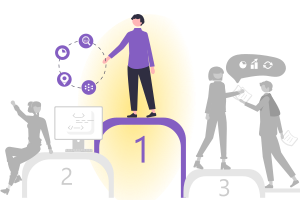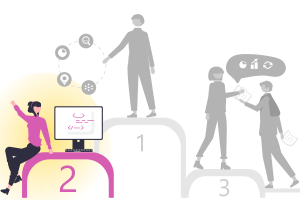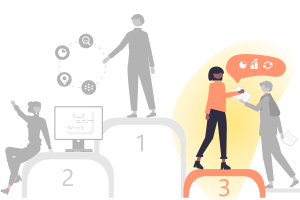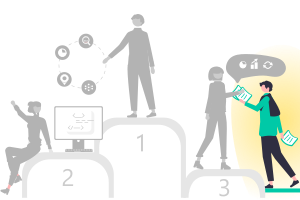
UpskilLing

Language data analyst
As a language data analyst you might work on operative tasks such as language data collection, transcription and annotation, language data exploration and analysis, often in connection with translation-related tasks. You probably possess a wide range of data oriented skills, as well as some research skills.
In the following sections, you will find more details about what you need to know to effectively perform previously presented tasks. Please have in mind that maintaining a strong foundation of disciplinary, (inter)cultural and transversal skills is equally indispensable for success across all listed tasks and responsibilities.

This means that you have some experience in collecting linguistic data (e.g. from corpora or from speakers, in an interview or an experiment), in curating them and storing them following a set of standards, and in analysing them (especially quantitatively)

This means that you are able to use linguistic data for doing research, framing questions through appropriate research design, thinking analytically and processing information critically

This means that you know about different types of language technologies, such as CAT tools, machine translation engines and ChatGPT, and you know not only how to use them, but also have some knowledge of how they work; you also have some programming skills, e.g. in Python

This means that you have some familiarity with entrepreneurship, you are able to manage different kinds of projects, plan their implementation, implement quality assurance procedures and ensure that teams work well together towards a common goal
Language data scientist
Language data and processes research
Language data manager
Language data cleaning, curation, management
Language project manager
Language project and workflow coordination